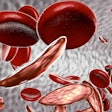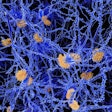
Health Canada, Canada’s regulatory agency, has approved Pfizer's Beqvez (fidanacogene elaparvovec) as a gene therapy treatment for adults with moderately severe to severe hemophilia B.
Beqvez is an adeno-associated viral (AAV) vector-based one-time gene therapy for people age 18 and older with hemophilia B, a rare genetic bleeding disorder occurring primarily in men and caused by a congenital deficiency in blood-clotting protein factor IX (FIX). Patients who receive Beqvez must also be negative for neutralizing antibodies to variant AAV serotype Rh74.
Beqvez uses an AAV vector to deliver a variant of the FIX gene, after which patients should be able to produce FIX without regular infusions of plasma-derived or recombinant FIX, the current standard treatment.
The approval was made based on results from the open-label, single-arm, phase III BENEGENE 2 study, the main objective of which was to evaluate the annualized bleeding rate for participants treated with gene therapy versus a standard FIX prophylaxis replacement regimen. The study enrolled 45 participants, all men between the ages of 18 and 65. Beqvez is also under review with the U.S. Food and Drug Administration (FDA) and the European Medicines Agency.
Another one-time gene therapy for hemophilia B, CSL Behring's Hemgenix (etranacogene dezaparvovec), was approved by Health Canada in October. Hemgenix was approved by the FDA for the treatment of hemophilia B in November 2022.
Hemophilia B occurs in about 1 in 40,000 people and about 15% of patients with hemophilia, according to the FDA.
Additionally, Pfizer is seeking U.S. and European Union approval for its experimental candidate marstacimab for the treatment of hemophilia A and B.



















